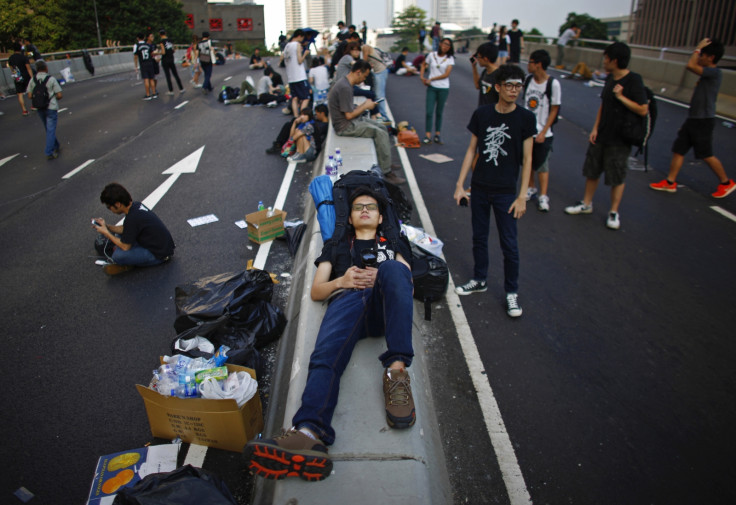Hong Kong Protests: Filipino Workers Avoid Pro-Democracy Rallies for Fear of Deportation

Filipino domestic workers in Hong Kong are reportedly staying away from the pro-democracy protests that rocked the city's downtown areas after receiving threats that they could be jailed or even deported.
The Philippine consulate issued a warning to avoid areas where mass demonstrations are taking place to demand residents of Hong Kong be allowed to nominate their own presidential candidates.
It urged all its nationals to "avoid venues of these protest actions... to ensure your safety and avoid being inadvertently perceived as being part of the protest actions," according to the South China Morning Post. The consulate also warned that anyone found participating at those gatherings can be fined or imprisoned for 12 months.
Other Filipino nationals complained that media in their country warned their citizens not to join the Occupy Central protest because they could be deported. However, the Philippine department of foreign affairs dismissed those reports.
"If a Filipino is caught by police in the protests and found breaking the law, we can only imagine that after serving time, they will be asked to leave Hong Kong. That is something we can assume. But I'm not saying that they will be deported," the department's spokesman Charles Jose said.
Protesters took to the streets to challenge Beijing's decision to reject open nominations for candidates under proposed guidelines for Hong Kong's first-ever leadership election in 2017. China, who called the protests illegal and supported the Hong Kong government's crackdown, wants to continue hand-picking the candidates from a pro-Beijing elite.
Since then, the protest mushroomed to encapsule broader concerns about the region's democracy and its ability to protect its identity and freedoms.
Hong Kong's foreign domestic workers, mostly Indonesians and Filipinos, cannot apply for Hong Kong permanent residency and cannot vote in the region's elections. Many of them have expressed sympathy for the protests but also frustration for not being recognised in the city constitution.
According to government data, there are 321,000 domestic workers in the 7 million population of Hong Kong. 97% of the domestic workers come from Indonesia and the Philippines.
In 2010, two domestic workers from the Philippines, Evangeline Vallejos and Daniel Domingo, conducted a legal battle to be considered ordinary citizens. A judge ruled in favour of them and ruled that the immigration law preventing them from seeking permanent residency is unconstitutional. However, a Court of Appeal overturned the decision.
© Copyright IBTimes 2025. All rights reserved.




















